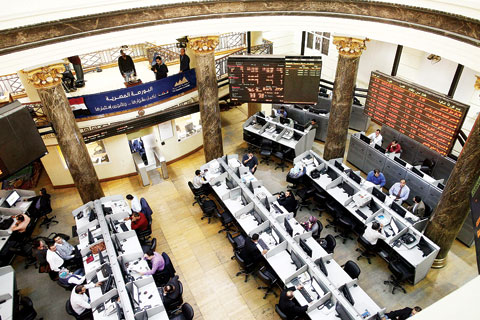A recent report issued by Pharos Research said that Oriental Weavers’ gross margin for the fourth quarter of 2017 hit 10.9%, pressured by increasing polypropylene prices, which rose by 13.1% year-over-year in 2017, in addition to the new fees imposed on free zone production facilities.
The research company has maintained its fair value (FV) for Oriental Weavers at EGP 19.80 per share, with an equal weight recommendation.
Oriental Weavers’ board of directors has proposed a dividend per share of EGP 1.40, “implying a dividend yield of 8.8% and an 83.7% payout ratio based on consolidated net profit,” the report noted.
The research company expected oil prices to remain range-bound, as well as polypropylene prices; hence, Oriental Weavers’ 14-15% earnings before interest, taxes, depreciation, and amortisation (EBITDA) margin guidance for 2018 is likely to remain the same.
The Egyptian household durable firm has almost retired all of its Egyptian pound-denominated debt, on which interest expenses shrank by 24.3% quarter-over-quarter and 27% y-o-y, the report added.
Given that, Oriental Weavers has registered a foreign exchange loss of EGP 26m on euro-denominated liabilities, as a result of appreciation of the euro against the US dollar and the Egyptian pound, according to the report.
Oriental Weavers posted a 40% y-o-y surge in consolidated profits for 2017, as net profit stood at EGP 741.7m last year from EGP 528.9m.
Meanwhile, Mubasher Trade Research has maintained its buy/moderate risk rating for Telecom Egypt’s stock with the same price target (PT) of EGP 18.80 per share, implying an upside potential of 53%.
Telecom Egypt’s top-line revenues rose by 33% y-o-y in 2017 to EGP 18.57bn, which is slightly higher than estimates of EGP 17.76bn, according to a recent report.
The research company attributed the growth in Telecom Egypt’s revenue to a 34% y-o-y surge in revenues from the home services segment to EGP 5.66bn last year.
Revenues from the US dollar-denominated segments hiked by 57% y-o-y to EGP 6.81bn in 2017, making up 36.7% of the top line, the report added.
The Egyptian telecom company’s net profit was also bolstered by its share of profit from Vodafone Egypt, which soared by 250% y-o-y to EGP 2.34bn in 2017, compared to EGP 668.4m in 2016, beating estimates of EGP 1.9bn in 2017, the report highlighted.
“The low recorded share of profits in 2016 was attributable to VFE’s FX loss of EGP 469.11m in the fourth quarter of 2016 in the wake of the EGP flotation,” the report continued.
Given that Telecom Egypt reported an 18% y-o-y surge in consolidated profits for the full-year 2017, as net profit amounted to EGP 3.2bn last year, compared to EGP 2.7bn in 2016.
On another side, the research firm has downgraded its rating for Misr Fertilisers Production Co (Mopco) to sell/moderate risk from buy/moderate risk with the same price target (PT) of EGP 111.33 per share.
Global urea prices are likely to grow, on which the fertiliser producer is forecast to record a price-earnings ratio (P/E ratio) of 9.8 times and enterprise value/ EBITDA of 5.8 times, according to a recent report.
The Egypt-based firm has reported its preliminary results for 2017 with earnings of EGP 674.8m, compared to EGP 709.9m a year earlier, the report added.
The company’s annual clean earnings did not match with estimates of EGP 1.36bn by 35% “on the back of booking deferred taxes during the year in relation to the translation of Egyptian Nitrogen Products Company (ENPC)’s US dollar-denominated financial statements to EGP,” the report highlighted.
Furthermore, tax expenses amounted to EGP 1.28bn, which implies an unusual effective tax rate of 65% that should be normalised next year, the report noted.
Revenues soared 212% y-o-y to EGP 7.40bn, slightly lower than estimates of EGP 8.11bn.
The research firm attributed the increase in Mopco’s revenues to the “suboptimal utilisation rate for ENPC’s production lines, resulting from the partial malfunction in the ammonia trains.”




